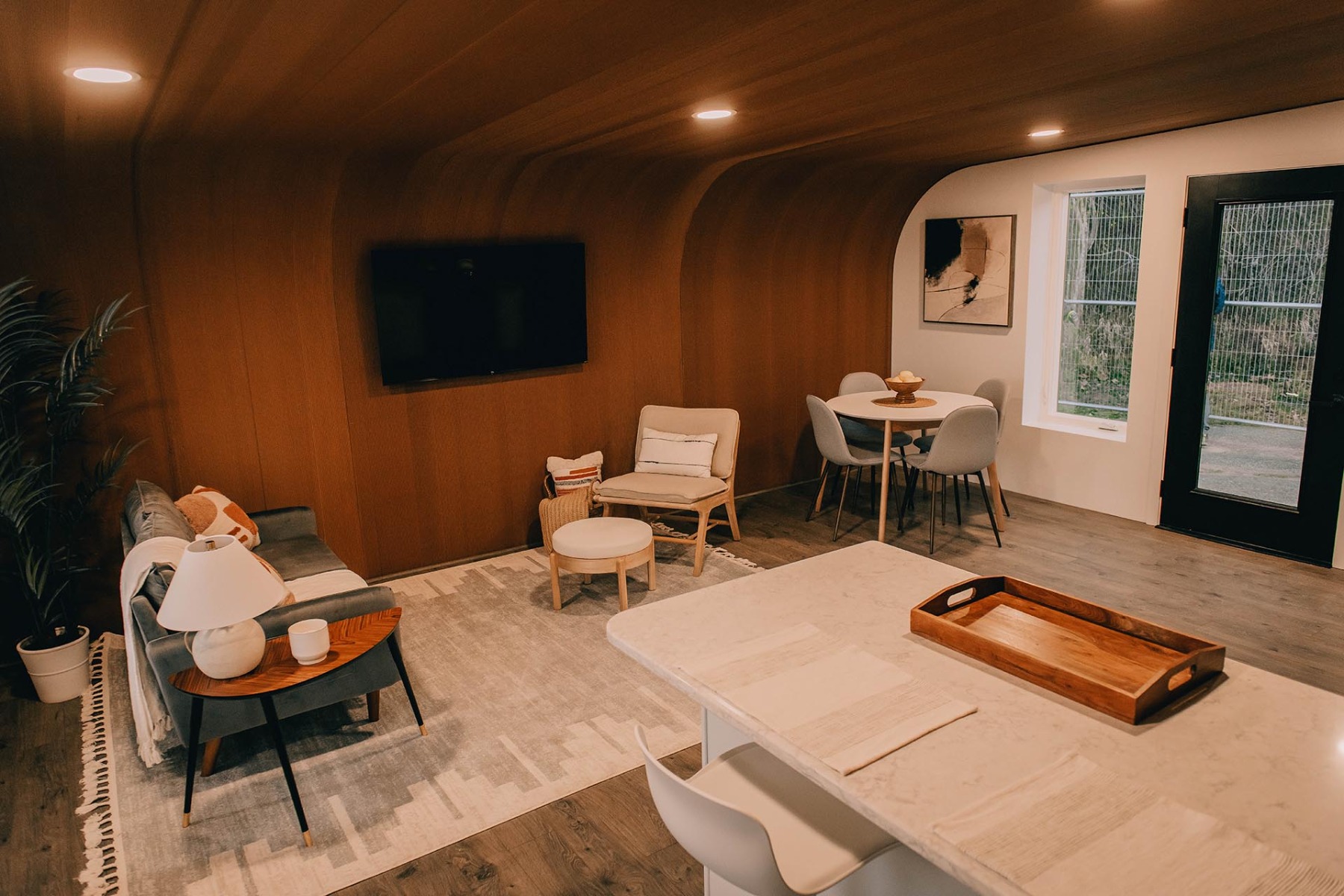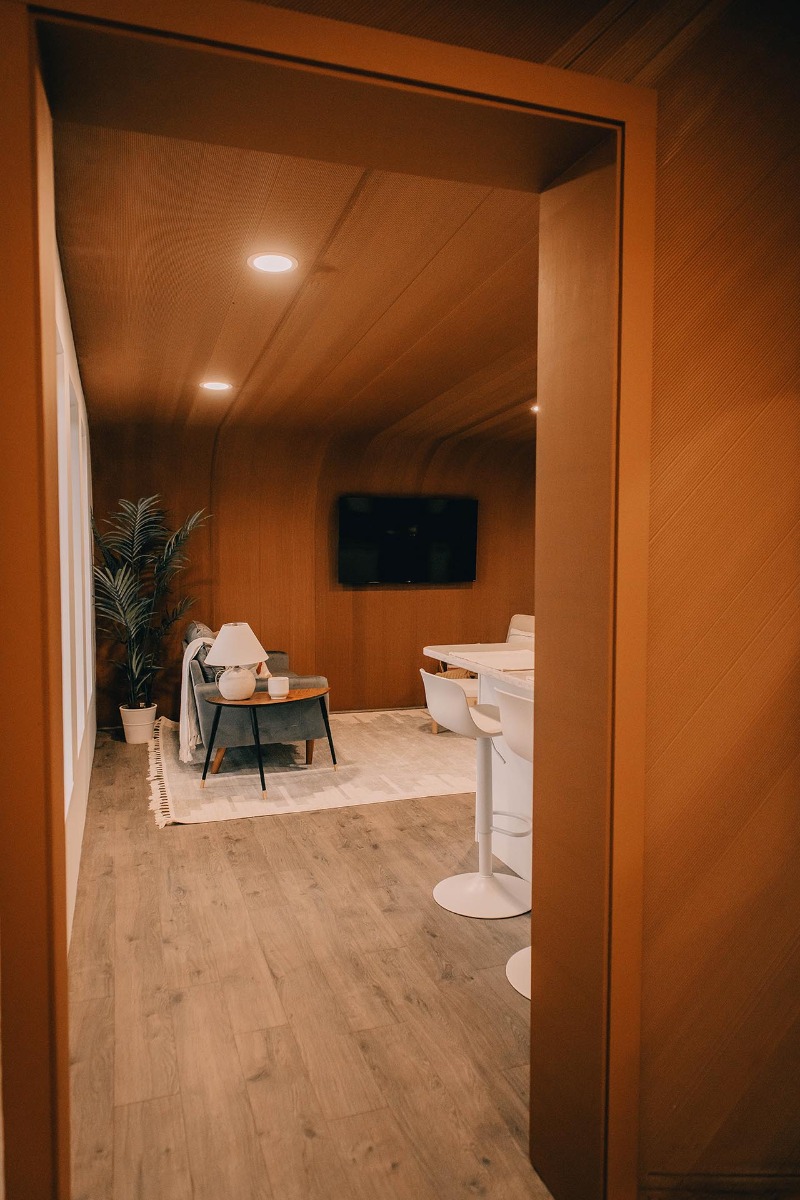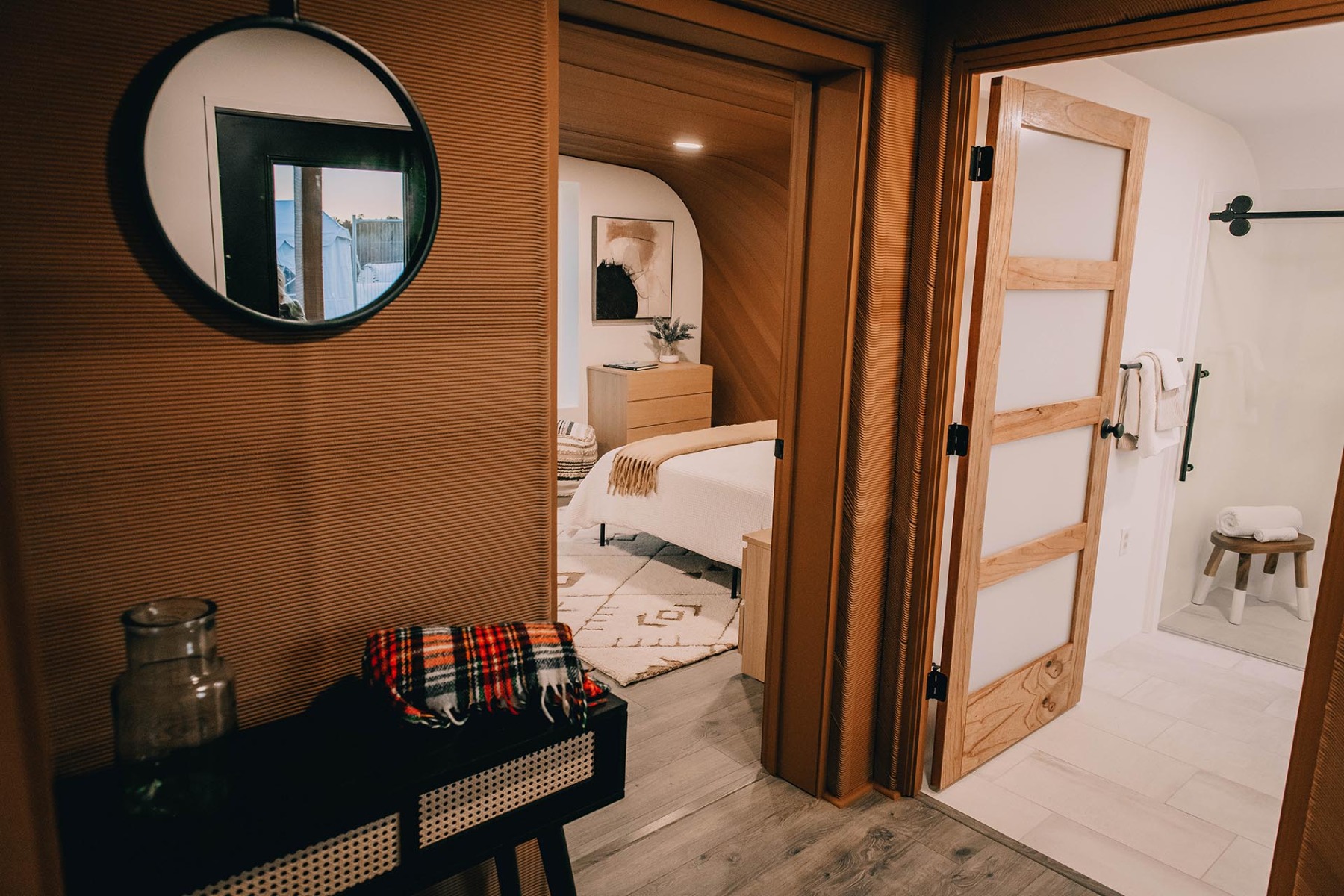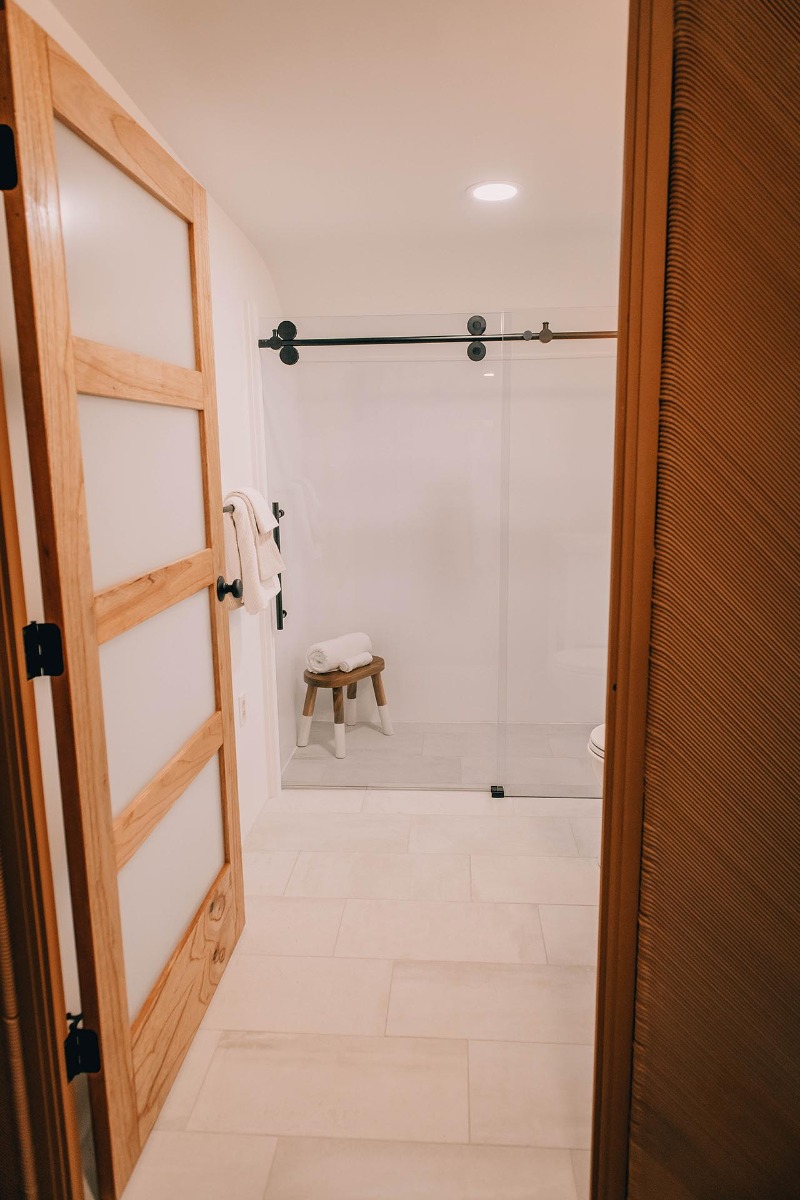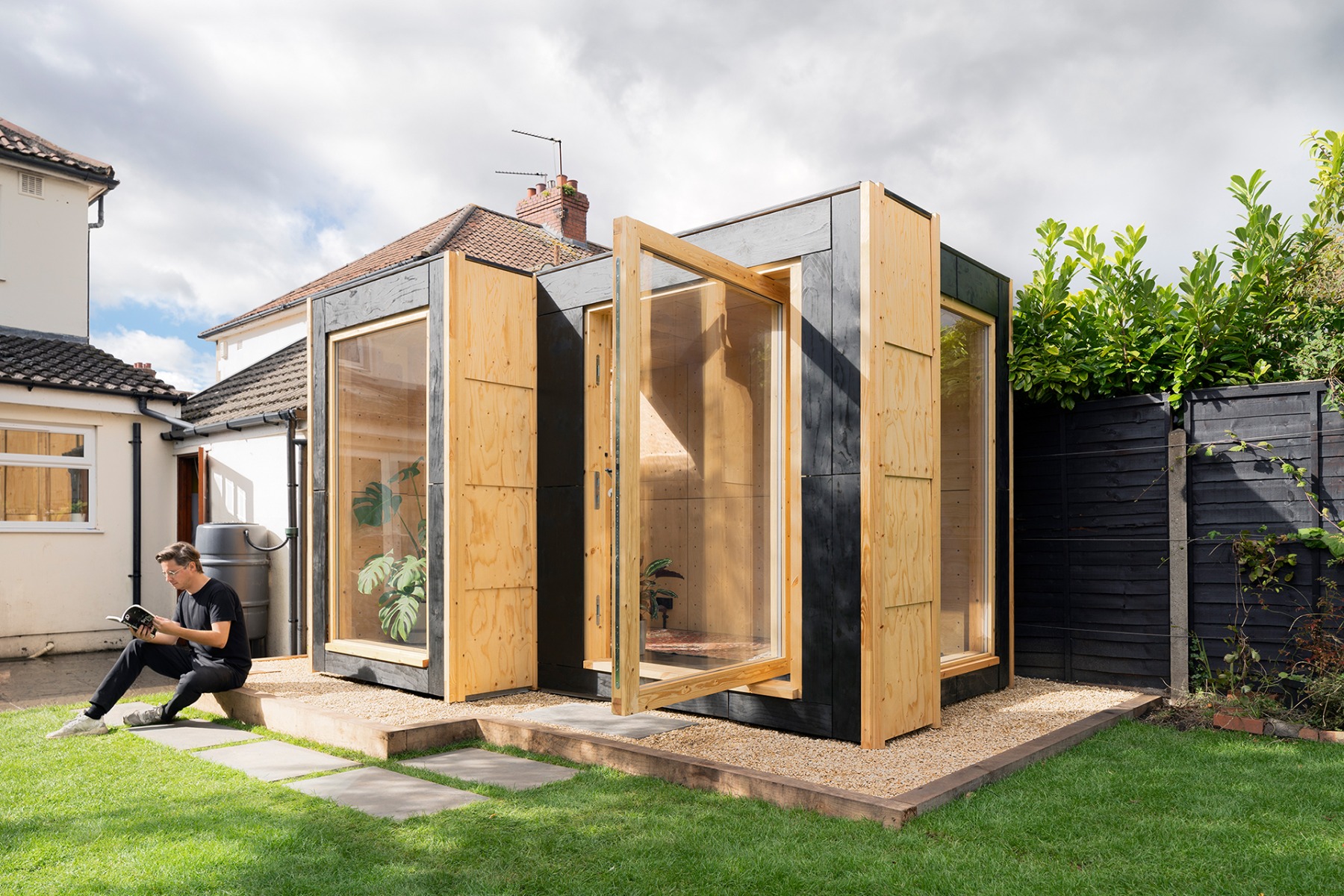100 percent natural
BioHome3D from the University of Maine

Prototyp BioHome3D, © MJ Gautrau, University of Maine
The 55,74-m² (600 square feet) BioHome3D prototype was produced in November 2022 at the Advanced Structures and Composites Center (ASCC) of the University of Maine. Wood fibres and bio-resin formed the printing materials, making the building completely recyclable.


View into the living area, © MJ Gautrau, University of Maine
Tackling waste
The project dramatically reduces building waste, uses local resources and makes house construction less dependent on global supply chains. Production of the BioHome3D prototype was largely automated through use of the world's largest polymer 3D printer, already deployed in 2019 to make the largest 3D-printed boat in the world.
The house was transported to the building site in four modules and erected in half a day's work. Electricity was up and running within two hours, with only one electrician needed.


Bedroom, © MJ Gautrau, University of Maine
Tackling the housing crisis
But the project is not concerned with recycling alone; rather, in developing the highly-insulated bio-house, the Advanced Structures and Composites Center is seeking to counter the housing shortage that is increasingly proving to be a drag on the economy. According to the National Low Income Housing Coalition, there is a need in the USA for seven million affordable living units, including approx. 20 000 in Maine alone – and rising.


The prototype is equipped with thermal, environmental and structural monitoring sensors. © MJ Gautrau, University of Maine
Tackling one-offs
BioHome3D draws on the ASCC's long and continuously evolving experience in aspects of design, modelling and 3D fabrication. The prototype is equipped with thermal, environmental and structural monitoring sensors. Data gathered in the fierce 2022/2023 winter is to help improve the BioHome3D still further.
Architecture: University of Maine Advanced Structures and Composites Center (ASCC), Oak Ridge National Laboratory
Partner: MaineHousing, Maine Technology Institute
Location: Orono, (US)
Financial support: U.S. Department of Energy’s Hub







